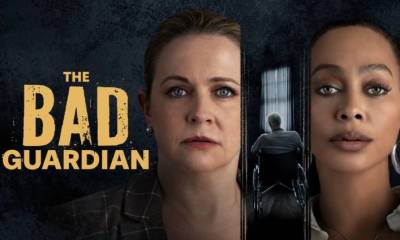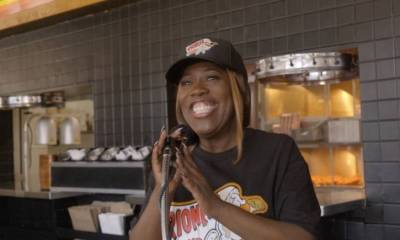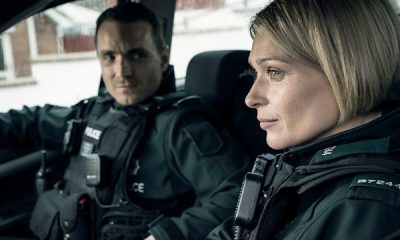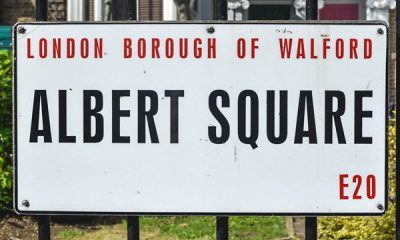Interviews
Murder Island | Interview with Simon Harding

WHAT MAKES A GOOD MURDER DETECTIVE?
Tenacity is one of the major traits you need as well as being structured and organised in terms of the work that you do. Then there’s the other side, the personable side, where you need to be empathetic, strong-willed and strong-minded. You tackle some quite gruesome scenes. You need people who have a strong stomach. And to be a good detective you need to be batting at the top of your game and you need to have lots of experience of all types of different crime.
WHAT DID YOU THINK OF THE CRIME SCENES CREATED FOR MURDER ISLAND?
It was very similar to a murder scene in the normal circumstances. A body found in a bedroom, blood on the carpet, blood in the hallway, finger marks, signs of a disturbance. Then there were items around the house which can give you clues that you might need to understand who the victim is, or understand what the motive for the murder is or what else might be going on. It’s not unrealistic at all.
CAN YOU TALK ME THROUGH YOUR ROLE ON THE SHOW?
My previous experience is thirty years as a detective and as a senior officer in murder, so Maca and me were deputies to Parm Sandhu who was the senior officer. Parm is a retired chief superintendent and Maca and I have experience of homicide, so we were helping her by guiding the contestants. We purposely didn’t want to know who the suspect was because we wanted to be immersed in the same experience. We would open the door and barge in on them, see what they were doing and ask ‘What’s your thought process?’ We made sure they weren’t going off on a complete and utter tangent
WHAT ADVICE WOULD YOU GIVE A NEW DETECTIVE?
Treat people how you want to be treated yourself. Don’t talk down to people, just because you’re wearing a uniform. New detectives have got to be ready for the long hours, the unsociable hours, the cancelling of home functions… if you haven’t got a strong person behind you or family, then it can be quite devastating.
WHAT ARE THE POPULAR MISCONCEPTIONS ABOUT SOLVING A MURDER?
There’s an expectation from people that there is going to be clear CCTV, there’s going to be DNA evidence, fingerprint evidence, there’s going to be witnesses, there’s going to be everything you see on crime dramas… The reality is very, very different to that. Murders don’t take place underneath CCTV cameras, they aren’t committed by people not wearing gloves. You might be starting from nothing. You might literally have a body in a field and you’ve got to work out what on earth has happened. That’s why it’s important to take that methodical approach to understand who your victim is. When you understand your victim, you might understand why they died. Nine out of 10 times you’ve got to go a mile down the road to see your first CCTV camera. It isn’t central London where there’s 300 cameras for every 100 metres.
IS THERE ANY BEHAVIOUR YOU WON’T TOLERATE FROM THE AMATEUR DETECTIVES?
Needing to be told something quite obvious twice. I want to see maps, I want to see images. I want to see everything like that. That’s the way my mind works, and pretty much the way that most detectives’ minds work. We need to see the maps, go to the crime scene, see pictures. Then when someone’s talking, we have an idea of what it means. Quite often I would pop into the rookie detectives’ room and say: ‘This is what I’d like to see, then go back, and it was still a bit rubbish so you’d have to go back again. I’d get frustrated because in normal mode time is so critical. I don’t have time to tell somebody twice. As an SIO I needed to see information laid out and I felt everybody needed to see it.
HOW IMPORTANT IS THE HIERARCHY AND CHAIN OF COMMAND IN POLICING?
If you take policing away from detectives and put it onto the streets of London when there’s a big protest and it’s all going wrong, somebody needs to be in charge. Somebody needs to direct the officers who are like rabbits in the headlights and scared. They need to be told and then there needs to be somebody else directing. It is important. The respect angle to it as well is a huge thing. I do like the rank structure in policing. It’s the way it works. A sergeant needs control of the constables and to supervise and make sure they’re doing their daily work, the inspector is the tactician, and the person above them is the strategist. The tactics of their strategy is implemented by the inspector. It does seem a little bit Victorian but it does work and you can’t just have 30,000 people running around London doing the same thing.
WHAT WERE YOUR FIRST IMPRESSIONS OF THE AMATEUR DETECTIVES?
Some were not as prepared as others and others were over-confident. But generally, they’re all really nice people. They all came to the Island thinking they could do it and they all found it really hard. I was quite pleased with that.
WHAT DO THE AMATEUR DETECTIVES NEED TO REMEMBER WHEN THEY APPROACH A CRIME SCENE?
They were told before they stepped into the crime scene what not to do. They were told you can move things but nothing with a yellow marker next to it. Be careful where you walk and pretty much all of them walked in, took 100 photographs of a plant pot, took 100 photographs of a door lock which wasn’t broken and then stepped in the blood.
You need to step back, have a look around you and look at the environment. Where is this house? Where is it situated? Before they even walk in there, they should work out that it’s well off the beaten track. So why was anybody there in the first place to raise the alarm? Don’t make assumptions just look at the facts. The facts are that there is blood on the walls, there’s fingerprints, there is blood on the floor. There are other people involved in homicide like your forensic scientist. He was there but I think only one or two of them actually asked him a question. And some of them still picked up things that weren’t supposed to be picked up because they went next to yellow markers. They could have cross-contaminated DNA.
HOW WOULD YOU DECIDE WHICH TEAMS ARE FAILING ON THE SHOW?
There were elements we judged them on like attention to detail, performance… Are they listening? Are they picking things up? Are they improving? Some people were probably too slow to start with but they were picking things up. It was tough. I’ll be honest, every time that we tried to decide who was going to go it was a really, really tough decision. It wasn’t always unanimous either.
DO YOU THINK THAT ANYONE CAN LEARN TO BE A DETECTIVE?
I think anyone can do it. Being a detective has changed quite a lot as well, there are different elements now to being a detective. In my team, before I retired, I had some people who were literally as geeky as you like, they did the telephones, and they did the computers, all the analytical stuff. But if I threw them in into a heated situation with loads of very angry suspects, it wouldn’t be for them at all. That’s why you have a team, which has all the different aspects of policing that go to make up a murder enquiry. I think anyone can do it, if they’ve got the attitude to do it.

 News2 days ago
News2 days agoThe Bad Guardian Movie Premiere (Lifetime, May 18, 2024)

 News2 days ago
News2 days agoJeopardy! Friday May 17, 2024, Recap, Winner and Final Answer

 News3 days ago
News3 days agoJeopardy! Masters: Semifinals 1 & 2 (ABC, Friday May 17, 2024)

 News3 days ago
News3 days ago60 Minutes Season Finale: Pope Francis Interview (CBS, Sunday, May 12, 2024)













































